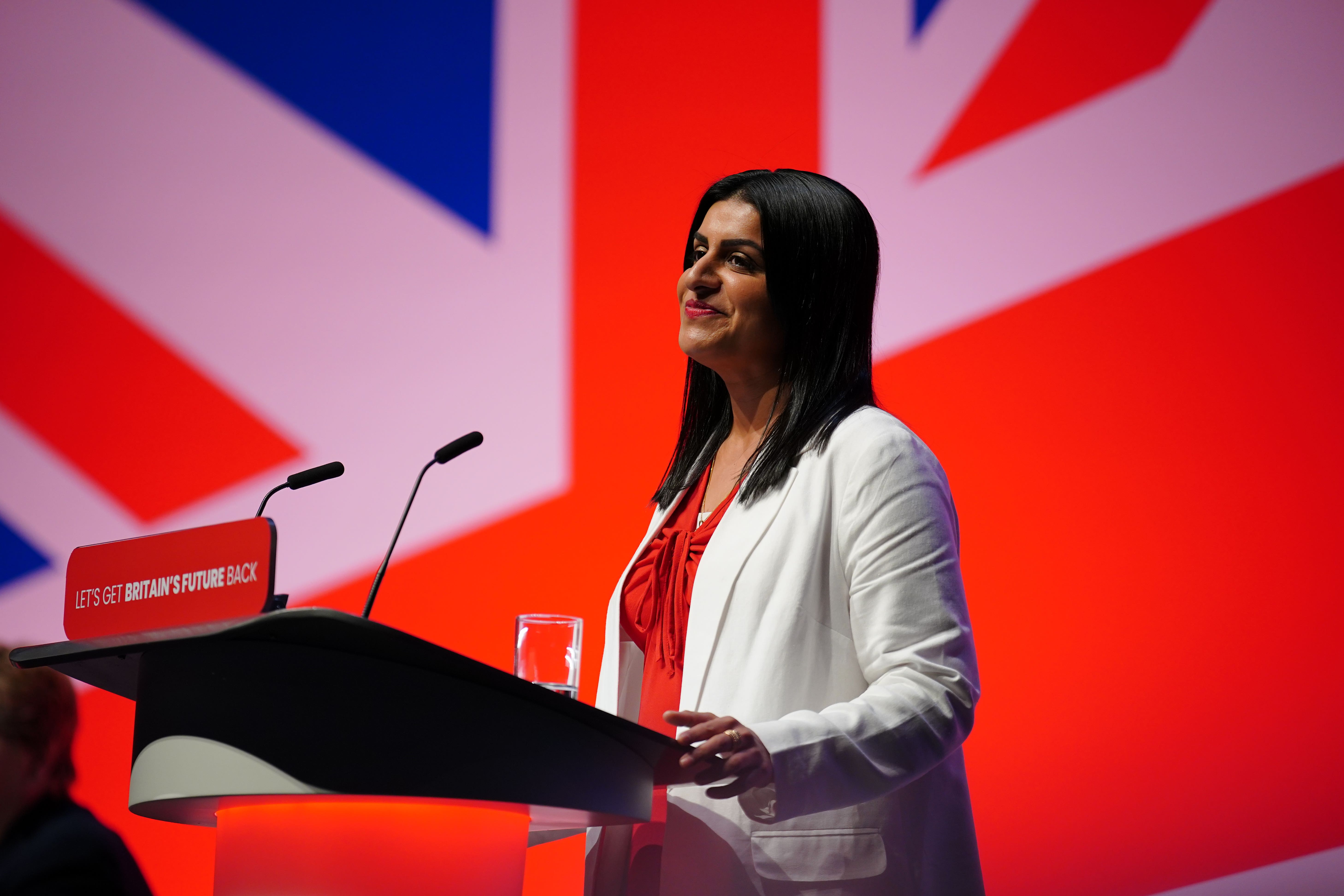What is top of the to-do list for the new Justice Secretary?
Overcrowding in prisons is one problem for the new administration.

Your support helps us to tell the story
From reproductive rights to climate change to Big Tech, The Independent is on the ground when the story is developing. Whether it's investigating the financials of Elon Musk's pro-Trump PAC or producing our latest documentary, 'The A Word', which shines a light on the American women fighting for reproductive rights, we know how important it is to parse out the facts from the messaging.
At such a critical moment in US history, we need reporters on the ground. Your donation allows us to keep sending journalists to speak to both sides of the story.
The Independent is trusted by Americans across the entire political spectrum. And unlike many other quality news outlets, we choose not to lock Americans out of our reporting and analysis with paywalls. We believe quality journalism should be available to everyone, paid for by those who can afford it.
Your support makes all the difference.Shabana Mahmood could face pressure to make a string of urgent decisions as she takes on the role of Justice Secretary.
Top of her teeming in-tray will likely be how to tackle overcrowding in prisons after governors warned cells could be full within a matter of days of Labour taking office.
There has been no shortage of anguished cries from campaigners and legal commentators lamenting the state of the country’s beleaguered justice system as report after report has warned it is victims who are suffering amid swelling court backlogs, staff shortages, crumbling buildings and a lack of funding.
Sir Keir Starmer already admitted his administration may have to keep releasing prisoners early to ease the pressure on jails despite the policy proving contentious.
On Thursday he branded the crisis, which has also seen police asked not to arrest suspects because of a lack of prison space, a “shocking indictment” on the previous government and a “terrible state of affairs” to “inherit”.
Stressing how it would be impossible to magic up a new prison within hours of the election result, he added: “We’re going to have to get on with the hard yards of sorting this mess out.”
Warning the problem puts the public in danger, the Prison Governors’ Association, which represents more than 95% of all prison governors and managers working in England and Wales, last week said the entire criminal justice system “stands on the precipice of failure” as it called on the next government to tackle problems “without delay”.
In an open letter to the leaders of political parties, the body said it believes there is “no other option open” to government than to release more prisoners early to grip the “crisis”, adding: “An uncrowded prison system should have no more than about 78,000 people in custody.”
As of Friday, the prison population stood at 87,453 with a “usable operational capacity” of 88,864, indicating 1,411 spaces are available.
This does not include about 1,350 other cell spaces which are always kept free as a contingency measure, so prisons have the capacity to operate safely and respond to any urgent or unforeseen circumstances.
The Government expanded the scheme which meant some inmates could be released from jail up to 70 days early, in a bid to free up prison cells, but concerns have been raised that dangerous criminals could end up being eligible.
Officials insist offenders will continue to be supervised under strict conditions.
The letter followed a threat from the prison officers’ union last month that it could take the government to court if overcrowding in jails gets worse.
The Prison Officers Association has repeatedly raised fears prisons could be full by early July and said it may launch a legal challenge under health and safety laws if safe capacity levels are breached because guards have “no right to strike” in England and Wales.
In a report published earlier this year, Whitehall’s spending watchdog found overcrowding in prisons is now “one of the biggest obstacles” to cutting the courts backlog.
The Ministry of Justice was already building six new prisons to create an extra 20,000 places as demand grows for cell spaces, partially because of the Government’s recruitment campaign to hire 20,000 more police officers.
About 6,000 spaces have been created already and about 10,000 will be built by the end of 2025. Whether the programme will continue as planned since the change in government remains to be seen.
Among the myriad of concerns high on the agenda for the incoming department boss are the delays victims are facing, with some having to wait years to see justice.
The Government’s target of cutting the crown court backlog to 53,000 by March 2025 is “no longer achievable”, the National Audit Office has said.
Meanwhile, questions continue to swirl over whether the Probation Service is fit for purpose in the wake of a string of high-profile killings by criminals shortly after they were released from prison.